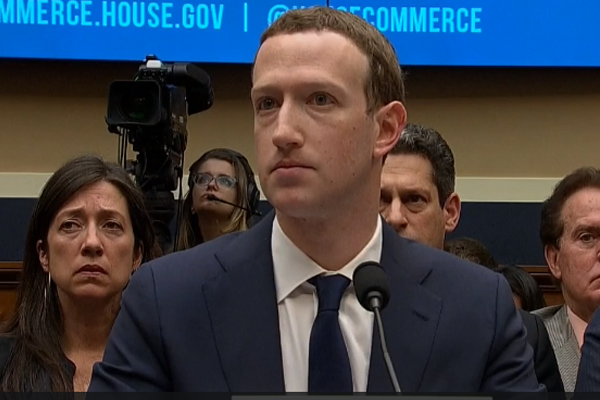On Wednesday, Facebook CEO Mark Zuckerberg testified before a House committee over a series of issues faced by the social networking site, including the spread of Russian propaganda on its platform and the Cambridge Analytica data misuse scandal.
In the first part of the hearing, Zuckerberg managed to deflect several questions of how much control people have over their data on the world’s largest social media network without a major gaffe, while avoiding being cornered into supporting new government regulation.
The hearings that ended on Wednesday revealed no consensus among US lawmakers about what kind of privacy legislation they might want to pursue, if any, and no timeline for action, Reuters said.
Questioning was considerably more aggressive and informed on the Wednesday hearing. Zuckerberg has been grilled on the categories of information Facebook collects, its failure to crack down on opioid sales on its platform, and its building of “shadow profiles” of non-users without their consent.
During the hearing, Zuckerberg revealed that he was among the nearly 87 million people whose personal information was improperly shared with political consultancy Cambridge Analytica. He gave no further details.
His admission that even the company’s tech-savvy founder was unable to protect his own data underscored the problem Facebook has in persuading skeptical lawmakers that users can easily safeguard their own information and that further legislation governing Facebook is unnecessary.
“How can consumers have control over their data when Facebook does not have control over the data?” asked Representative Frank Pallone of New Jersey, the ranking Democrat on the House Energy and Commerce Committee, at the beginning of Wednesday’s hearing, Reuters reported.
Zuckerberg said it would take “many months” to complete an audit of other apps that might also have improperly gathered or shared users’ data.
“I do imagine that we will find some apps that were either doing something suspicious or misusing people’s data,” he said.
The Facebook chief was also unable to answer Democratic Representative Debbie Dingell, when she asked how frequently Facebook used computer code embedded in websites to gather dossiers on virtually everyone online.
In a series of questions on how people can remove data from Facebook, Zuckerberg said the company does “collect data on people who are not signed up for Facebook, for security purposes.” He had no response when asked how a non-Facebook member could remove information without signing up for the service.
The Cambridge Analytica issue was the reason Zuckerberg was on Capitol Hill, answering questions about how that company – which has counted US President Donald Trump’s election campaign among its clients – got hold of data about Facebook users.
Zuckerberg said Facebook is planning to file a legal action against both the research firm itself, the researcher Aleksander Kogan who sold user data to the firm, and Cambridge University where Kogan worked.-





